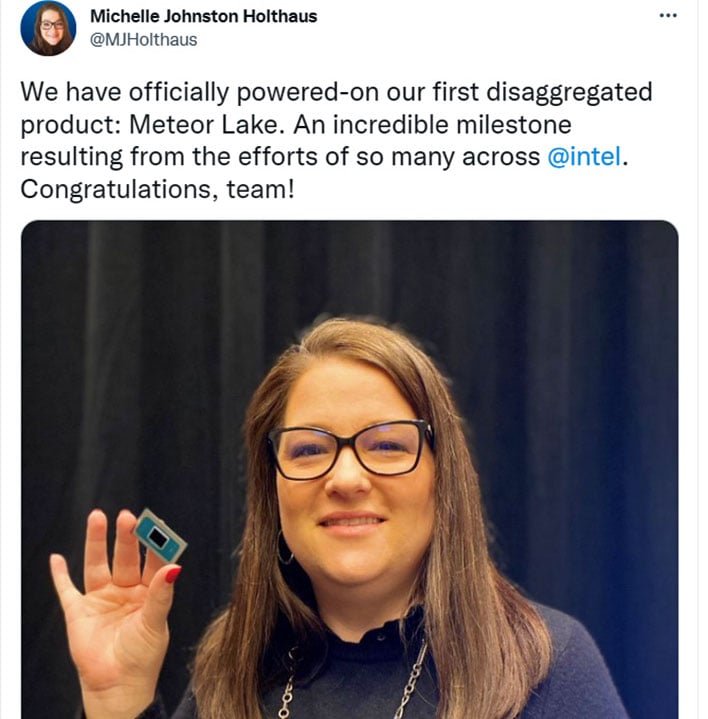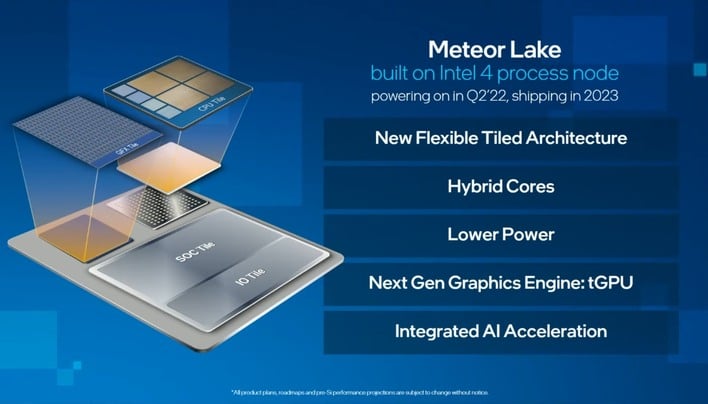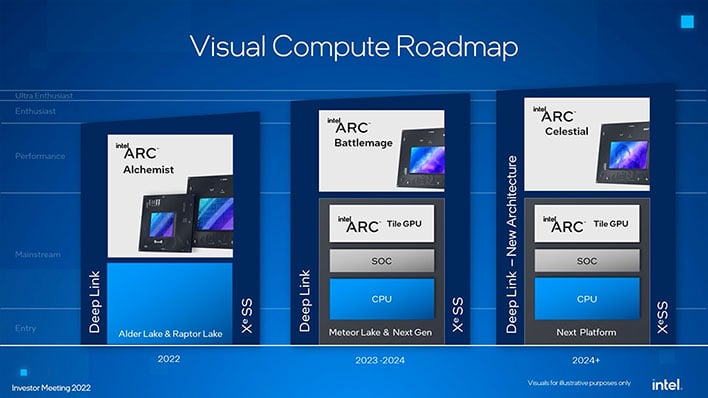People might have scoffed at AMD's "stapled-together" processors once upon a time, but it has become clear since then that chiplet-based processor designs are
the way forward. There are still benefits to making monolithic CPUs, but they can be costly and inefficient, compared to "disaggregated" designs.
Intel's next 13th-Gen processors, known as
Raptor Lake, are still going to be monolithic, but the company's follow-on14th-Gen
Meteor Lake family will use multiple "tiles," as Intel calls them. At its core, that isn't a new concept for Intel; its
Sapphire Rapids-family chips that make up the 4th-generation Xeon Scalable parts are also tile-based.
However, the difference with Meteor Lake is that it's also disaggregated, which in this case means that multiple tiles are needed to function as a single processor design. With Sapphire Rapids, each tile is a fully-functioning Xeon processor. It's more similar to the old-school "multi-chip module"
(MCM) designs than to the 14th-gen designs. With Meteor Lake, graphics, CPU cores, and I/O are on separate dice, similar to how AMD's Ryzen processors are put together.
That's an important first step for Intel, and it seems like progress is coming fast for Team Blue. Earlier today, Michelle Johnston Holthaus (Intel's EVP & GM for Client Computing)
tweeted a picture holding what is presumably a 14th-generation Meteor Lake mobile processor while stating that the company has "officially powered-on" the upcoming chips.
Intel released more specific detail along with its
Q1 earnings report yesterday, where CEO Pat Gelsinger stated that "Meteor Lake has now successfully booted Windows, Chrome, and Linux." He goes on to comment that this is notable not only for the future of Intel's future processors but also for the health of its "Intel 4" chip fab process technology, although he didn't make any remarks about the performance of Meteor Lake on Intel 4.
Indeed, Meteor Lake is set to be a big step forward for Intel. Aside from the move to chiplet-based design, it's
also a die shrink compared to 12th-gen Alder Lake and 13th-gen Raptor Lake. The integrated graphics on Meteor Lake might also be a big step up from Raptor Lake's too, as Intel's slides imply that 14th-gen processors will move to the second-generation Arc architecture, known as
Battlemage.
Of course, we still haven't seen first-hand how Alchemist performs, so it's impossible to even hazard a guess at the capabilities of Battlemage, but Intel says that Meteor Lake will offer real discrete-class graphics firepower. Likewise, it remains to be seen how Intel's first truly chiplet-based CPUs and its Intel 4 process turn out in the end. We'll probably hear some whispers before they hit the market next year, so keep your eyes on HotHardware.





